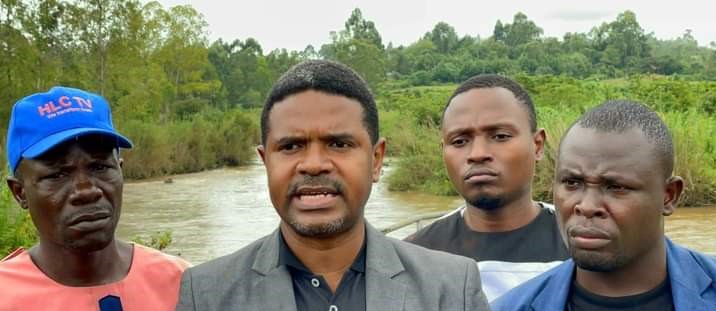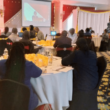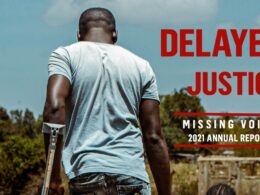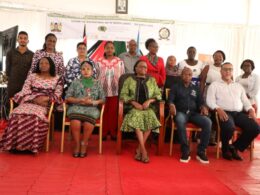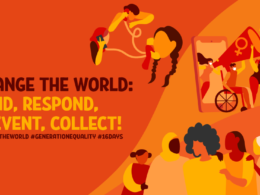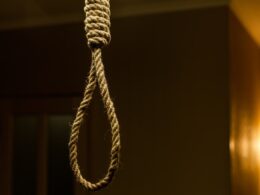By Susan Kendi
“To the living we owe respect, but to the dead, we owe only the truth.” ― Voltaire.
A forensics investigations team led by the Directorate of Criminal Investigations (DCI) has begun conducting post-mortem examination on the bodies retrieved from River Yala to establish the cause of death. The team is split into two, and priority is given to bodies that their relatives have identified. The autopsy of all bodies is likely to take two days.
The Deoxyribonucleic acid test (DNA) will also be done to confirm the individuals’ identities before the family can collect the bodies for burial. The DNA is anticipated that it will take at least two weeks.
The response comes a day after two more bodies were fished out of the river in the presence of DCI Detectives and taken to Yala Sub County Hospital Mortuary, increasing the number to 23.
More than a week ago, on January 18, 2021, Haki Africa, a national human rights organisation, and human rights activist Boniface Mwangi took up to Twitter to narrate the chilling stories of the discovery of bodies of rotting bodies in River Yala, a river of western Kenya that drains its water in Lake Victoria. The bodies are allegedly transported and dumped in the river in double cabins and Probox vehicles in sealed sacks, naked and most of them being male, in the River Yala in Kenya.
The findings have made headlines and triggered conversations on social media trending with the hashtag #RiverYalaBodies.
Contracting Reports
In an interview, Nicholas Okero, a diver who has been assisting the police in retrieving bodies from the river, told the media that he had recovered an average of 31 unclaimed bodies over the past months, some being of Somali origin “woria.”
“Kazi yangu ni kutoa mwili yenye haina wenyewe inaletwa na gari na inamwagwa kwa ile bridge ya kwenda Busia-Kisumu, zingine zinabakia hapo, zingine zinateremka mpaka (Ndanu) falls, zingine zinaingia intake hapa, yote. Hata jumapili nilitoa mwili kwa intake hapa ile imetupwa tu. Wamefunga macho vitu kama hizo tu. Hapa tumetoa mwili karibu 31 ile haina wenyewe. Hata juzi tulitoa woria tunasemanga ni Msomali, wawili. Mmoja tulimtoa kwa bridge ya kwenda Kisumu-Busia na ingine tulitoa hapa kwa intake. Hata serikali ya Yala imejua hii mambo yote. Ikitupwa lazima wapate hiyo ripoti wananiita mimi ndiyo natoa…,”said Nicholas Okero while narrating in the incidents in Kiswahili[ES1] .
“I am a diver, whose work is retrieving unclaimed bodies that are thrown at the bridge Other than the bodies that are dumped around the falls, some are thrown upstream and then flow downstream. Some are retrieved while others just decay because people don’t claim them. They are blinded and such like things. We retrieved the bodies of two people of Somali origin recently.Those in charge know all these as we make police reports after retrieving any body.”
In a press release dated January 19, 2022, the spokesman of the Inspector General of Police, Bruno Isohi Shiosho, stated, “In the last two years, 19 incidents involving human bodies that have been found dumped in River Yala have been reported to the National Police Service.”
The release refuted claims made by the media based on the reports by the diver, Nicholas and Haki Africa.
No more room in the morgue
According to a media report by Citizen Television, a letter to Gem sub-county commander dated January 20, 2022, the Yala Subcounty hospital superintendent, Dr. Bruno Okal, noted that the hospital was strained and could not accommodate any more unclaimed bodies due to lack of storage capacities.
“The Yala sub-county hospital mortuary is currently overstretched and is unable to receive more unclaimed bodies from your end. Kindly send any unclaimed bodies to Siaya county hospital referral mortuary or any other public morgue until the situation is resolved…” said Dr. Bruno Okal in the letter.
As of Monday, the Yala sub-county hospital mortuary had 21 bodies against a capacity of 16.
According to the report, the sub-county commander stated that the police have no jurisdiction to transport the bodies from the scene of retrieval.
The law.
The Constitution of Kenya 2010 provides for the application of domestic and international instruments so long as they have been ratified into law. Kenya is a signatory to the International Covenant on Civil and Political Rights (ICCPR) and the UN Convention Against Torture( CAT).
The Constitution of Kenya in Article 29 “states that every person has the right to personal freedom and security. This includes the right not to be subjected to any form of violence or manner of torture, whether physical or psychological; or, be treated or punished in a cruel, inhuman or degrading manner.”
Under Article 244 of Kenya’s constitution, when describing the duties of the National Police service, mandates the service to comply and train staff to the highest standards of competence and integrity and respect human rights and fundamental freedoms and dignity. This is bolstered in the Sixth Schedule of the National Police Service Act. A police officer shall use non-violent means first, and force may only be employed when non-violent means are ineffective or without any promise of achieving the intended result.
The force used shall be proportional to the objective to be achieved, the seriousness of the offense, and the person’s resistance against whom it is used, and only to the extent necessary while adhering to the law’s provisions the Standing Orders. Article 238 (2)(b) of the Constitution unequivocally requires that national security be pursued in compliance with the law, the utmost respect for the rule of law, democracy, human rights, and fundamental freedoms.
Since the Constitution’s promulgation, Kenya has enacted The Prevention of Against Torture Act, 2017 that criminalizes torture, cruel and degrading treatment. Other laws to address torture and related cases; however, are yet to be operationalized:
- The National Coroners Service Act, 2017.
After years of campaigns for independent and conclusive investigations into unexplained deaths, especially in the police’s hands, the National Coroner system was introduced, with new legislation, the National Coroners Service Act, 2017. The Act offers a comprehensive framework to facilitate an effective investigation process on mysterious deaths. To date, the Act is yet to be operationalized. Operationalization of the Act would see much responsibility taken away from the police as the primary investigator. The Coroners’ Service is to be headed by a trained doctor with qualifications and experience in pathology, including providing evidence to the courts.
- Victim Protection Framework No. 17 of 2014
The legislation establishes minimum standards on the rights support and protection of victims of crime. It gives victims rights to accessible and understandable information, support services, review decisions not to prosecute, and individual assessment to identify vulnerability, special protection measures, and compensation. The legislation is also yet to be operationalized.
- Kenya Reparations Bill, 2017
This was a private bill introduced in parliament to provide for recognition and reparations for victims of human rights violations in Kenya, including victims of the 2007-2008 election violence.





